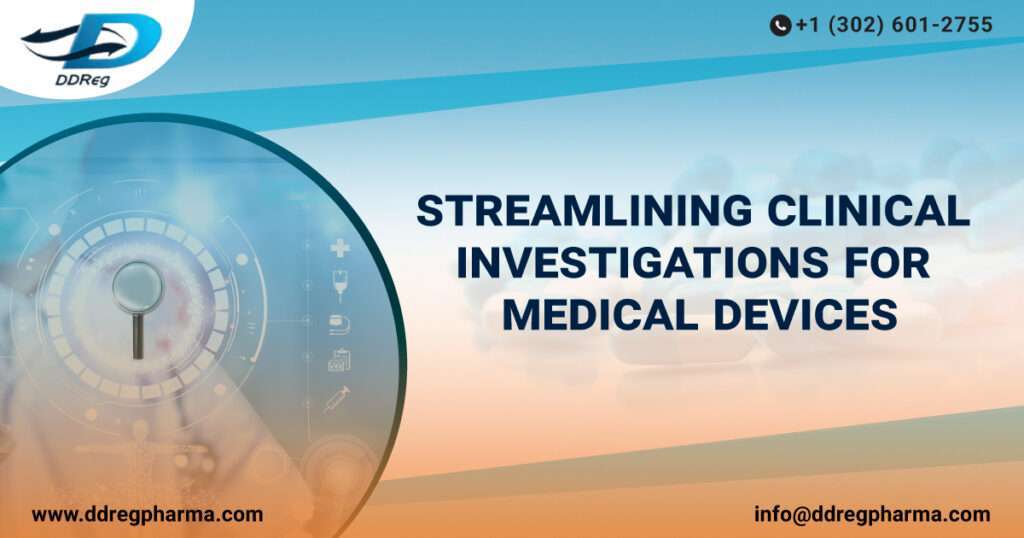Clinical investigations for medicinal devices are critical in order to advance healthcare and patient safety. Streamlining clinical investigations help accelerate the delivery of innovative solutions to patients, which ensures timely access to devices that would help diagnose and treat diseases. Simplifying regulatory processes, enhancing stakeholder engagement, and aligning with global practices fosters more rapid approvals.
The National Health Surveillance Agency (ANVISA) Brazil recently published updates to its regulations on clinical investigations with medical devices. This standard came into force early this month, on the 4th of January, and helps to align the regulatory scenario for clinical investigations regarding devices with international practices.
Updates to ANVISA’ new standards
Streamlining Processes: One of the key modifications introduced by RDC 837/2023 is the elimination of the requirement to submit the Consent Process in Clinical Research separately. Previously mandatory for each clinical investigation under the Medical Device Clinical Investigation Dossier (DICD) regime, this step is now integrated into a unified DICD process. This change is expected to expedite the analysis process, making it more efficient for both regulatory authorities and stakeholders involved in medical device clinical trials.
Delimitation for ANVISA’s Approval: The resolution brings about a significant shift in the delimitation of clinical investigations subject to ANVISA’s approval. Since 4th Janua, 2024, only clinical investigations whose results may support the registration of class III and IV medical devices in Brazil will require submission to the regulatory agency. This targeted approach eliminates the need for prior consent for post-marketing studies and class I and II medical devices, streamlining the regulatory pathway for certain categories of medical devices.
Automation and Convergence: RDC 837/2023 embraces a more convergent terminology in line with RDC 751/2022, aligning the language used in regulations related to the development of medical devices. Notably, the resolution removes the need for a substantiated opinion from the Research Ethics Committee (CEP) as part of the documents required for the submission of clinical research with medical devices, emphasizing ethical considerations.
Simplification and Modernization Measures: Several measures have been introduced to simplify and modernize the regulatory processes. The issuance of Special Notices for approved clinical investigations has been discontinued. Instead, ANVISA’s decisions on these petitions will be published through Specific Resolutions in the Official Gazette of the Union (DOU). This shift aims to provide a more transparent and centralized approach to disseminating information related to DICDs and clinical investigations.
Suspensions and Terminations: The standard outlines clear procedures for the cancellation or suspension of clinical investigations. Sponsors can cancel or suspend investigations, provided appropriate technical-scientific justifications are submitted, along with a follow-up plan for participants. In cases of cancellation for safety reasons, sponsors must provide detailed justifications and measures for minimizing or mitigating risks to participants.
Responsibilities of Sponsors and Investigators: RDC 837/2023 delineates the responsibilities of sponsors and investigators in conducting clinical investigations. Sponsors are tasked with ensuring the correct execution of the clinical investigation plan, selecting qualified investigators, and managing data. The resolution emphasizes the sponsor’s responsibility for all expenses related to procedures, exams, and adverse event management. Investigators, in turn, must conduct the investigation in accordance with the agreed plan, personally supervise activities, and promptly inform participants in case of suspension or termination.
Responsibilities of Investigator-Sponsors: In clinical investigations led by investigator sponsors, the institution linked to the investigator qualifies as the primary sponsor. This section specifies the responsibilities and processes related to the transfer of functions between a sponsor and a Clinical Research Organization (CRO).
Structure of the Research Centre: RDC 837/2023 outlines the requirements for research centres conducting clinical investigations, emphasizing the need for adequate facilities, equipment, and human resources. Changes to the list of research centres must be communicated to ANVISA using the DICD petition form.
Security Monitoring and Alerts: The resolution includes detailed provisions for monitoring adverse events, reporting by investigators, and notification requirements for sponsors. Immediate safety measures in the event of serious adverse events are highlighted, emphasizing participant protection and transparency.
Inspections: Two sections of the resolution detail inspections to verify compliance with Good Clinical Practice (GCP) and Good Manufacturing Practices (GMP). ANVISA has the authority to conduct inspections at research centres, sponsors, Clinical Research Organizations (CROs), laboratories, and manufacturing units to ensure adherence to Brazilian legislation and international guidelines.
Import Regulations: RDC 837/2023 introduces specific regulations for the importation of medical devices exclusively for clinical research. The import process is subject to health inspection, with mandatory documents outlined, including the D.O.U. resolution approving the DICD. The resolution prohibits the entry of products not provided for in the DICD resolution.
Transitional and Final Provisions: The text includes transitional provisions for clinical trials already approved by ANVISA, requiring adherence to the resolution in force at the time of approval. Final provisions address issues such as ANVISA’s authority to request additional information, omissions resolution, and the possibility of cancelling clinical investigations based on inspection results.
Conclusion
ANVISA’s RDC 837/2023 represents a significant leap forward in harmonizing Brazil’s regulations for clinical investigations with international standards. By streamlining processes, enhancing transparency, and emphasizing participant safety, this resolution aims to create a conducive environment for the development of medical devices in the country. Stakeholders in the medical device industry must familiarize themselves with the nuances of RDC 837/2023 to ensure compliance and navigate the evolving regulatory landscape effectively. As the resolution comes into force on January 4, 2024, it marks a new era in Brazil’s approach to regulating clinical investigations with medical devices.
The Brazil regulatory & clinical landscape can present sponsors and marketing authorization holders (MAHs) with many challenges particularly if this country is new for them. DDReg provides expertise in regulatory consulting and end-to-end services for successful product development and launch into Brazil. Read more about medical devices here: Third Party Review Program for Medical Devices.

